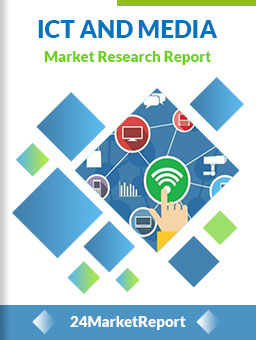
Download FREE Report Sample
Download Free sampleMARKET INSIGHTS
Global Supply Chain Consulting market size was valued at USD 3.2 billion in 2024. The market is projected to grow from USD 3.5 billion in 2025 to USD 6.0 billion by 2032, exhibiting a CAGR of 9.6% during the forecast period.
Supply chain consulting comprises professional services that optimize end-to-end supply chain operations through strategic advisory, process improvement, and technology implementation. These services encompass supply chain strategy development, inventory optimization, logistics network design, procurement transformation, and digital supply chain solutions. Leading firms leverage advanced analytics, AI-driven insights, and industry benchmarks to deliver measurable improvements in operational efficiency and cost reduction.
The market growth stems from increasing supply chain complexity in globalized business environments and accelerated digital transformation across industries. Recent developments include McKinsey's acquisition of SCM software firm Orpheus in 2023 to strengthen its digital supply chain capabilities, while Accenture expanded its supply chain AI solutions through partnerships with Blue Yonder and Kinaxis. Other key players like Deloitte and BCG are investing heavily in sustainable supply chain solutions to address growing ESG compliance requirements.
Increasing Business Complexity and Globalization Driving Demand for Consulting Services
The rapid globalization of supply chains has created unprecedented complexity for organizations across industries. As companies expand operations internationally, they require sophisticated strategies to manage suppliers, logistics networks, and regulatory compliance across multiple jurisdictions. The global supply chain consulting market has responded to this need, growing at a compound annual rate of 9.6%, with projections indicating the market will reach $6 billion by 2032. This growth is fueled by multinational corporations seeking expertise to optimize inventory management, reduce transportation costs, and mitigate geopolitical risks in increasingly intricate supply webs.
Digital Transformation Accelerating Adoption of Advanced Consulting Solutions
To know more about market statistics, Download a FREE Sample copy
Digital transformation initiatives across industries are compelling organizations to overhaul traditional supply chain models. The adoption of technologies including IoT sensors, blockchain for traceability, and AI-powered demand forecasting requires specialized consulting expertise. Research indicates that companies investing in digital supply chain transformation see 30-50% improvements in order fulfillment rates and inventory turnover. This performance leap is driving demand for consultants who can guide organizations through complex technology integrations while maintaining operational continuity.
➤ Leading firms like Accenture and Deloitte have reported 20-25% annual growth in their supply chain consulting divisions, particularly for digital transformation engagements.
Furthermore, the rise of predictive analytics and machine learning in supply chain management creates new opportunities for consultants to help clients harness data-driven decision making. Companies lacking in-house data science capabilities increasingly turn to consultants to implement these advanced systems and train personnel.
High Implementation Costs Deterring SMB Adoption of Consulting Services
While enterprise organizations readily invest in supply chain consulting, small and medium businesses often find the costs prohibitive. Comprehensive consulting engagements for supply chain optimization typically range from $250,000 to over $1 million, placing them out of reach for many mid-market companies. This creates a significant restraint on market growth, as SMBs represent nearly 40% of potential demand. Even when smaller firms recognize the potential ROI, the upfront investment can strain limited budgets and compete with other strategic priorities.
Other Restraints
Internal Resistance to Change
Many organizations face cultural resistance when implementing consultant-recommended supply chain changes. Employees may view external advice as disruptive to established processes, leading to pushback that undermines project success. Studies show approximately 30% of supply chain transformations fail due to inadequate change management.
Data Security Concerns
The increasing digitization of supply chain operations raises valid security concerns. Companies hesitate to share sensitive operational data with external consultants, particularly in industries with stringent compliance requirements like pharmaceuticals and defense contracting.
Talent Shortage in Supply Chain Consulting Creating Implementation Bottlenecks
The consulting industry faces a critical shortage of professionals with both technical supply chain expertise and strategic advisory skills. As demand for services grows, firms struggle to recruit and retain qualified consultants, particularly those with experience in emerging technologies. This talent gap creates implementation challenges, as projects often require specialized knowledge in areas like blockchain traceability or AI-driven logistics optimization that relatively few consultants possess.
The situation is further complicated by the need for industry-specific knowledge. A consultant advising a pharmaceutical company requires different expertise than one working with an automotive manufacturer. Developing this specialized knowledge takes years, limiting how quickly consulting firms can scale their operations to meet growing demand.
Sustainability Consulting Emerging as High-Growth Opportunity
The increasing focus on environmental sustainability presents substantial opportunities for supply chain consultants. With 75% of consumers considering sustainability when making purchases, companies urgently need to decarbonize their supply chains while maintaining profitability. Consultants who can help clients achieve net-zero targets through route optimization, sustainable sourcing, and circular economy strategies are in particularly high demand.
Additionally, the rise of ESG (Environmental, Social, and Governance) reporting requirements creates new consulting opportunities. Organizations need help measuring their supply chain carbon footprint, setting reduction targets, and implementing tracking systems to meet regulatory and investor expectations. Firms that develop expertise in sustainability metrics and reporting frameworks are well-positioned for growth in this expanding market segment.
Supply Chain Strategy Segment Leads Market Growth Due to Rising Demand for Holistic Optimization
The market is segmented based on type into:
Supply Chain Strategy
Supply Chain Planning
Supply Chain Execution
Sustainability Consulting
Others
Manufacturing Sector Dominates Due to Complex Global Supply Networks
The market is segmented based on application into:
Manufacturing
Retail & E-commerce
Healthcare & Pharmaceuticals
Energy & Utilities
Others
Large Enterprises Account for Major Market Share Due to Complex Supply Chain Needs
The market is segmented based on enterprise size into:
Large Enterprises
Small & Medium Enterprises
Advisory Services Remain Highly Sought After for Strategic Decision Making
The market is segmented based on service model into:
Advisory Services
Implementation Services
Managed Services
Global Firms Leverage Digital Solutions to Lead Supply Chain Consulting Market
The supply chain consulting market features a competitive mix of multinational professional service firms and specialized consultancies. McKinsey & Company and Deloitte Consulting currently dominate the landscape, collectively holding over 25% market share due to their integrated service offerings and multinational client base. These firms differentiate themselves through proprietary analytics platforms and end-to-end digital transformation capabilities.
Accenture Consulting has emerged as a formidable player, with its supply chain practice growing at 12% annually - outpacing the market average. The company's success stems from its SynOps digital platform that combines AI, analytics and automation to optimize supply chain networks. Similarly, IBM Global Services maintains strong positioning through its AI-powered Sterling Supply Chain Suite adopted by Fortune 500 manufacturers.
Mid-sized specialists like GEP and Infosys Consulting are gaining traction by focusing on niche areas. GEP's Smart procurement solutions have been particularly successful in the pharmaceutical sector, while Infosys has made significant inroads in APAC automotive supply chains through its AI-driven control towers.
Recent competitive developments highlight the importance of technology integration. Capgemini acquired Seattle-based supply chain analytics firm RXP Services in 2023 to bolster its digital capabilities, while Bain & Company partnered with Microsoft to develop next-gen supply chain planning tools. Such moves demonstrate the industry's shift toward tech-enabled consulting solutions.
Accenture Consulting (Ireland)
IBM Global Services (U.S.)
Bain & Company (U.S.)
GEP (U.S.)
Infosys Consulting (India)
Tata Consultancy Services (India)
Ernst & Young Advisory (U.K.)
Capgemini Consulting (France)
The Boston Consulting Group, Inc. (U.S.)
Booz Allen Hamilton (U.S.)
CGI Group (Canada)
Cognizant Technology Solutions (U.S.)
Deloitte Consulting (U.S.)
McKinsey & Company (U.S.)
PricewaterhouseCoopers Advisory (U.K.)
KPMG Advisory (Netherlands)
Oracle Consulting (U.S.)
The global supply chain consulting market is undergoing a paradigm shift as businesses increasingly adopt digital transformation strategies. AI-powered analytics now enable real-time decision-making, with predictive algorithms optimizing inventory management and logistics routes. Consulting firms report that over 60% of engagements now involve digitalization components, compared to just 35% five years ago. Cloud-based supply chain platforms are becoming the norm, allowing for seamless integration across global operations. Blockchain technology is also gaining traction, with pilots showing 40-50% reductions in supply chain verification times. These advancements are particularly crucial in complex multi-tier supplier networks where visibility remains a persistent challenge.
Sustainability-Driven Consulting
Environmental, Social, and Governance (ESG) considerations are reshaping consulting engagements, with carbon footprint reduction strategies now included in 72% of major consulting projects. Companies are seeking circular economy models that can reduce waste by 30-45% while maintaining operational efficiency. The automotive and consumer goods sectors lead this transition, driven by both regulatory pressures and consumer demand. Supply chain consultants are developing innovative approaches like "green lane" logistics and supplier sustainability scoring systems that have shown 15-20% improvements in environmental KPIs for early adopters.
The COVID-19 pandemic exposed critical vulnerabilities in global supply chains, leading to a permanent shift toward resilience planning. Consulting engagements now prioritize risk mitigation strategies, with 68% of Fortune 500 companies having established dedicated supply chain risk management teams. Nearshoring and regionalization strategies are being implemented across industries, particularly in electronics and pharmaceuticals where supply continuity is critical. Advanced scenario modeling tools help businesses prepare for potential disruptions, with best-in-class organizations maintaining 3-5 alternative supply routes for critical components. This trend is particularly evident in Asia-Pacific markets, where supply chain consulting revenues grew 12.4% year-over-year as companies restructured their regional networks.
North America
The North American supply chain consulting market is driven by early adoption of digital transformation technologies and stringent regulatory compliance requirements, particularly in the U.S. The region accounted for approximately 38% of global market revenue in 2024, led by dominant players like Accenture and McKinsey & Company. Businesses are prioritizing supply chain resilience after pandemic disruptions, investing heavily in AI-powered logistics optimization and risk management solutions. However, high consulting fees and saturated enterprise markets pose growth challenges. The U.S. remains the epicenter of innovation, with increasing M&A activity among consulting firms seeking to expand their supply chain capabilities.
Europe
Europe's mature market benefits from strong manufacturing bases in Germany and France, coupled with strict EU supply chain sustainability regulations. The region shows growing demand for consulting services related to circular economy transitions and carbon footprint reduction across logistics networks. Brexit has created unique challenges for UK-based firms managing cross-border supply chains, driving specialized consulting needs. While Western Europe demonstrates steady growth, Eastern European markets are evolving more slowly due to smaller enterprise budgets. Major consultancies are developing localized teams to address region-specific compliance requirements under the EU's Corporate Sustainability Reporting Directive.
Asia-Pacific
As the fastest-growing region projected at 11.2% CAGR through 2032, Asia-Pacific benefits from manufacturing expansion and infrastructure development across China, India, and Southeast Asia. The market remains highly fragmented between global consultancies and local providers, with cost sensitivity driving demand for hybrid consulting models. China's dual circulation strategy and India's production-linked incentive schemes are creating new consulting opportunities in supply chain localization. However, data transparency issues and intellectual property concerns sometimes limit foreign consultancy engagements. Japan and South Korea show strong adoption of automation-focused supply chain solutions in their advanced manufacturing sectors.
South America
The region presents moderate growth potential, primarily concentrated in Brazil and Argentina's commodity-driven economies. Supply chain consulting demand stems from needs to improve agricultural logistics efficiency and navigate complex trade regulations. Economic volatility frequently leads to project delays or scope reductions, while currency fluctuations impact consulting fee structures. Recent nearshoring trends benefiting Mexico are gradually extending to other markets as companies reconsider global supply chain footprints. Local consulting firms compete effectively with multinationals by offering specialized knowledge of regional trade blocs and customs procedures.
Middle East & Africa
This emerging market is seeing increased consulting demand from oil & gas operators modernizing their supply chains and Gulf nations developing logistics hubs like Dubai and Riyadh. Africa's growth is uneven, with South Africa and Nigeria showing the most activity in mining and consumer goods supply chain optimization. Political instability in some nations creates advisory needs around risk mitigation but deters larger consulting investments. The region presents long-term potential as infrastructure improves and manufacturing capabilities develop under various national diversification strategies, though adoption of advanced supply chain solutions remains selective among local enterprises.
This market research report offers a holistic overview of global and regional markets for the forecast period 2025–2032. It presents accurate and actionable insights based on a blend of primary and secondary research.
✅ Market Overview
Global and regional market size (historical & forecast)
Growth trends and value/volume projections
✅ Segmentation Analysis
By product type or category
By application or usage area
By end-user industry
By distribution channel (if applicable)
✅ Regional Insights
North America, Europe, Asia-Pacific, Latin America, Middle East & Africa
Country-level data for key markets
✅ Competitive Landscape
Company profiles and market share analysis
Key strategies: M&A, partnerships, expansions
Product portfolio and pricing strategies
✅ Technology & Innovation
Emerging technologies and R&D trends
Automation, digitalization, sustainability initiatives
Impact of AI, IoT, or other disruptors (where applicable)
✅ Market Dynamics
Key drivers supporting market growth
Restraints and potential risk factors
Supply chain trends and challenges
✅ Opportunities & Recommendations
High-growth segments
Investment hotspots
Strategic suggestions for stakeholders
✅ Stakeholder Insights
Target audience includes manufacturers, suppliers, distributors, investors, regulators, and policymakers
-> Key players include Accenture Consulting, IBM Global Services, Bain & Company, McKinsey & Company, Deloitte Consulting, KPMG Advisory, and PwC Advisory, among others.
-> Key growth drivers include increasing supply chain complexity, digital transformation initiatives, regulatory compliance requirements, and risk management needs across industries.
-> North America currently holds the largest market share, while Asia-Pacific is expected to witness the fastest growth during the forecast period.
-> Emerging trends include AI-powered supply chain analytics, blockchain for traceability, sustainable supply chain solutions, and cloud-based SCM platforms.

Speak to our Custom Research Team and get the Custom Research in a budget
Custom ResearchFrequently Asked Questions ?
A license granted to one user. Rules or conditions might be applied for e.g. the use of electric files (PDFs) or printings, depending on product.
A license granted to multiple users.
A license granted to a single business site/establishment.
A license granted to all employees within organisation access to the product.
Upto Working 24 to 48 hrs
Upto 72 hrs max - Weekends and Public Holidays
Online Payments with PayPal and CCavenue
Wire Transfer/Bank Transfer
Hard Copy




 Industry Market Size
Industry Market Size SWOT Analysis
SWOT Analysis Industry Major Players
Industry Major Players Revenue Forecasts
Revenue Forecasts Historical and Forecast Growth
Historical and Forecast Growth Profitability Analysis
Profitability Analysis
























